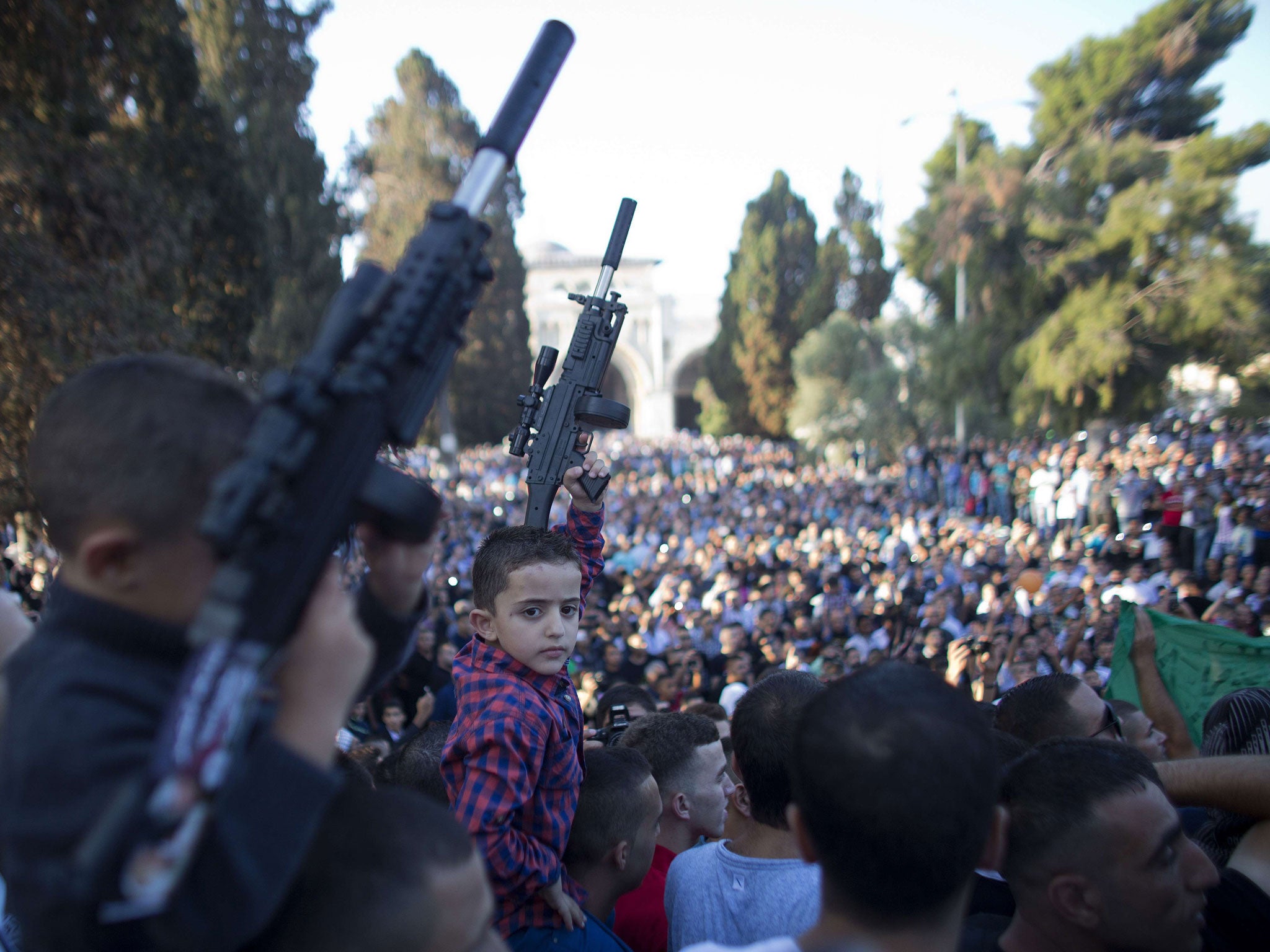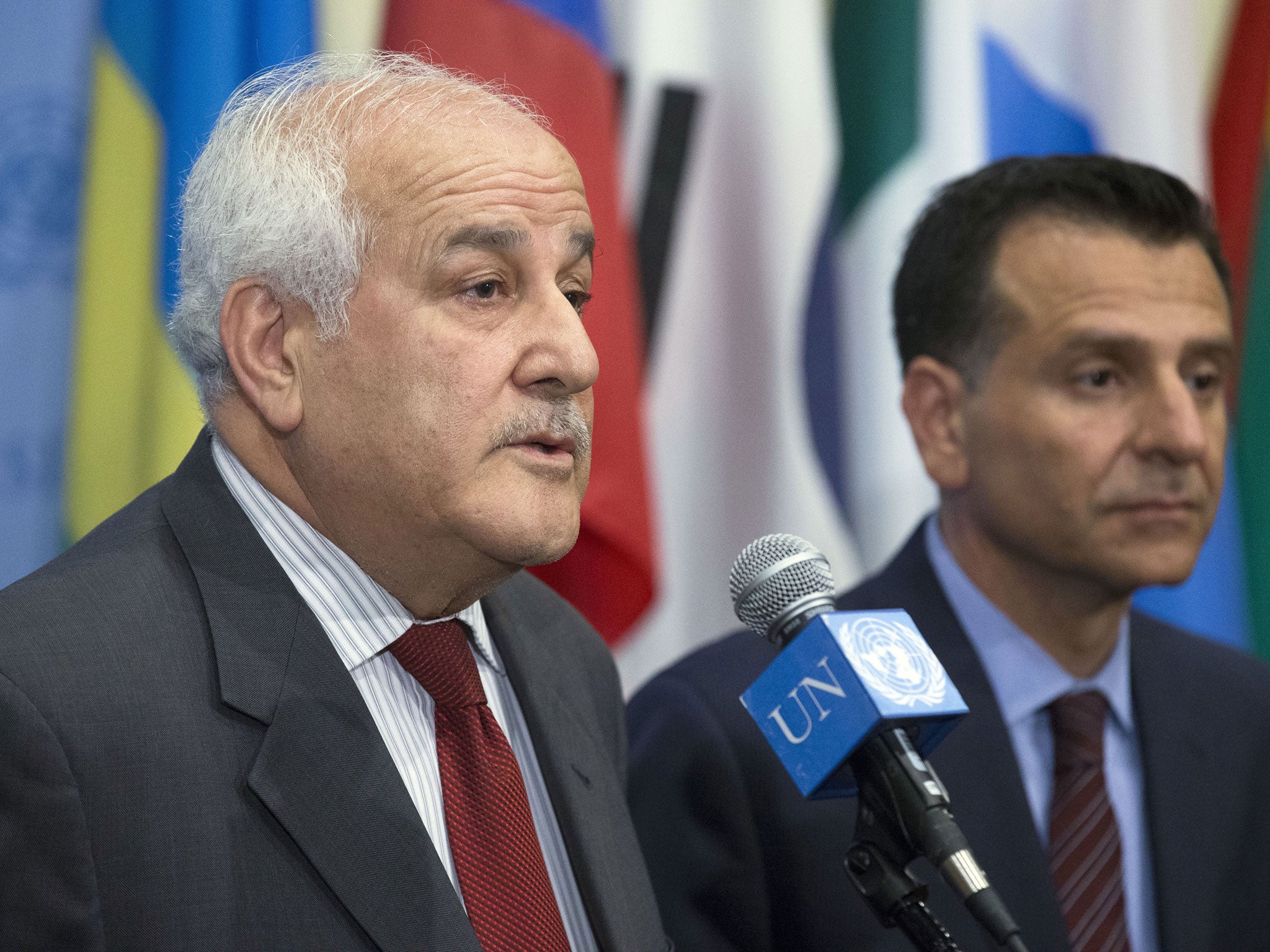Israel-Gaza conflict: Israel declares 'unlimited truce' across Gaza Strip but reserves right to respond to Hamas rocket fire
Israel will also continue its attempts to destroy cross-border tunnels

Your support helps us to tell the story
From reproductive rights to climate change to Big Tech, The Independent is on the ground when the story is developing. Whether it's investigating the financials of Elon Musk's pro-Trump PAC or producing our latest documentary, 'The A Word', which shines a light on the American women fighting for reproductive rights, we know how important it is to parse out the facts from the messaging.
At such a critical moment in US history, we need reporters on the ground. Your donation allows us to keep sending journalists to speak to both sides of the story.
The Independent is trusted by Americans across the entire political spectrum. And unlike many other quality news outlets, we choose not to lock Americans out of our reporting and analysis with paywalls. We believe quality journalism should be available to everyone, paid for by those who can afford it.
Your support makes all the difference.The Israeli military has declared an "unlimited truce" in Gaza as Palestinians celebrated the Muslim holiday Eid, following calls from the UN Security Council for both sides to observe an immediate ceasefire.
An uneasy lull in the fighting began at around 9.30pm last night after Hamas said it wanted a 24-hour pause to mark Eid al-Fitr, celebrating the end of the Ramadan fast.
And though a small number of rockets continued to fly from Gaza over the course of Monday - to which the Israeli army responded with tank and artillery shelling - it represented a significant reduction in violence and one of the calmest nights in the three-week conflict.
Speaking to Israel Radio today, the military's chief spokesperson Brigadier General Motti Almoz said: "The situation is an unlimited truce."
He nonetheless added that "the Israeli Defence Forces (IDF) are free to attack after any fire if there is any."
The Security Council, which held an emergency meeting just after midnight (4am GMT) on Monday, had urged both sides to "accept and fully implement a humanitarian ceasefire into the Eid period and beyond".
This afternoon, Secretary-General Ban Ki-moon said representatives from Hamas and Israel had "expressed serious interest" in his request for a more formal 24-hour ceasefire on humanitarian grounds, though "have not yet agreed on the timing of its implementation".
The lull today was certainly only relative; at least 12 rockets were observed coming from Gaza throughout the day, the IDF said, while Gazan residents reported Israeli shelling in the east and north of the Strip.
Health officials said two people, including a five-year-old boy, were killed in one of the attacks.
Israeli air, sea and ground attacks have killed some 1,037 Palestinians, mainly civilians and including many children, Gaza officials say. Israel says 43 of its soldiers have died, along with three civilians killed by rocket and mortar fire from Gaza.
The UN's call for an end to violence was reinforced today by a personal phone call in which the US President Barack Obama urged the Israeli Prime Minister Benjamin Netanyahu to hold fire "unconditionally".
But while Israel has already said it favours an Egypt-led peace proposal for an immediate ceasefire followed by subsequent talks, it is Hamas and its ally Islamic Jihad who have said simply going back to the terms of previous truces is not enough.
Deputy Islamic Jihad chief Zeyad Al-Nakhala hailed progress on mediation, but said in a public broadcast: "We are days away from the end of the battle, the clouds will clear and you (Palestinians) will see victory. We will not accept anything less than ending the blockade."
If there were hopes earlier that a form of peace could be wrought by the UN Security Council's firm presidential statement - one level short of a resolution - they were challenged by both the Israeli and Palestinian representatives at the council meeting.
The Palestinian UN ambassador, Riyad Mansour, criticised the council for not adopting a strong and legally-binding resolution demanding an immediate halt to Israel's "aggression", providing the Palestinian people with protection and lifting the siege in the Gaza Strip so goods and people can move freely.
Israel's UN ambassador, Ron Prosor, said the presidential statement didn't mention Hamas or the firing of rockets into Israel or Israel's right to defend itself.

He sidestepped several questions on whether Israel would accept a new humanitarian ceasefire, but stressed that it had agreed to five truces since the conflict began.
"Every single time the international community called for a ceasefire, we ceased and Hamas fired," he said.
Join our commenting forum
Join thought-provoking conversations, follow other Independent readers and see their replies
Comments